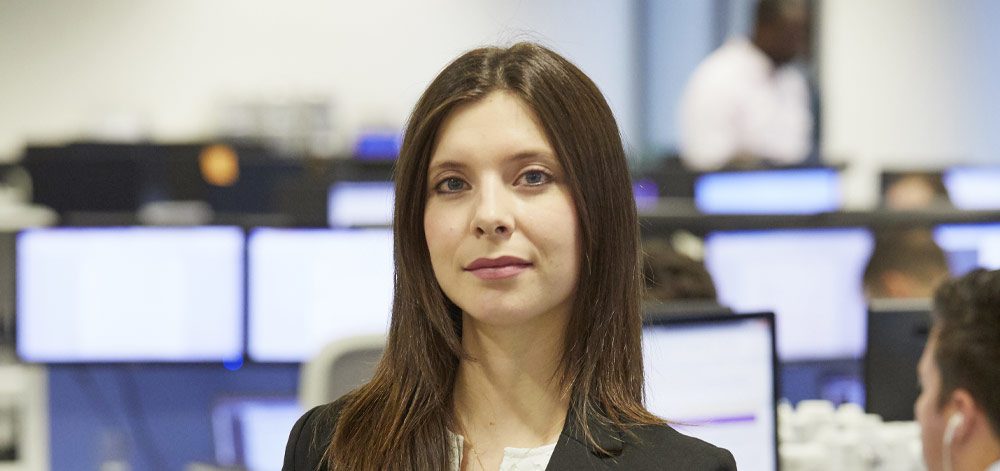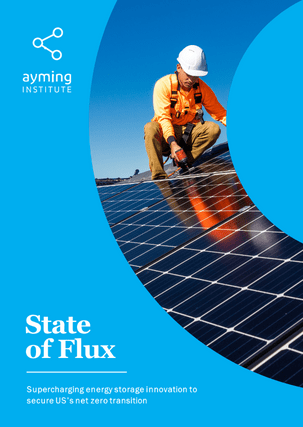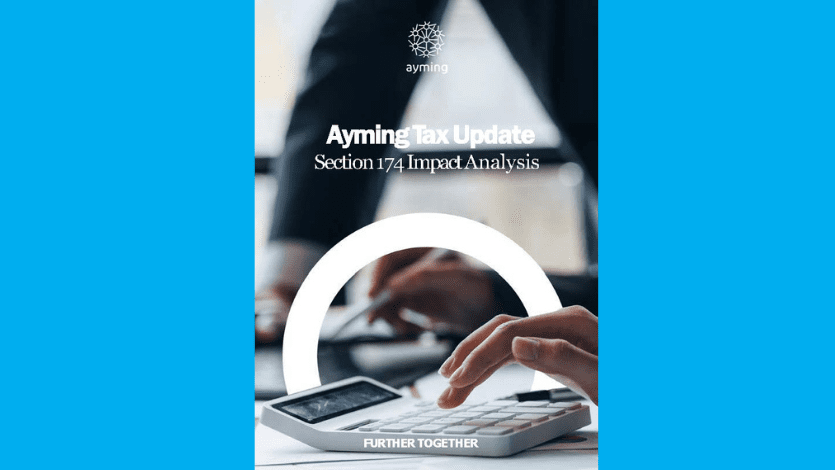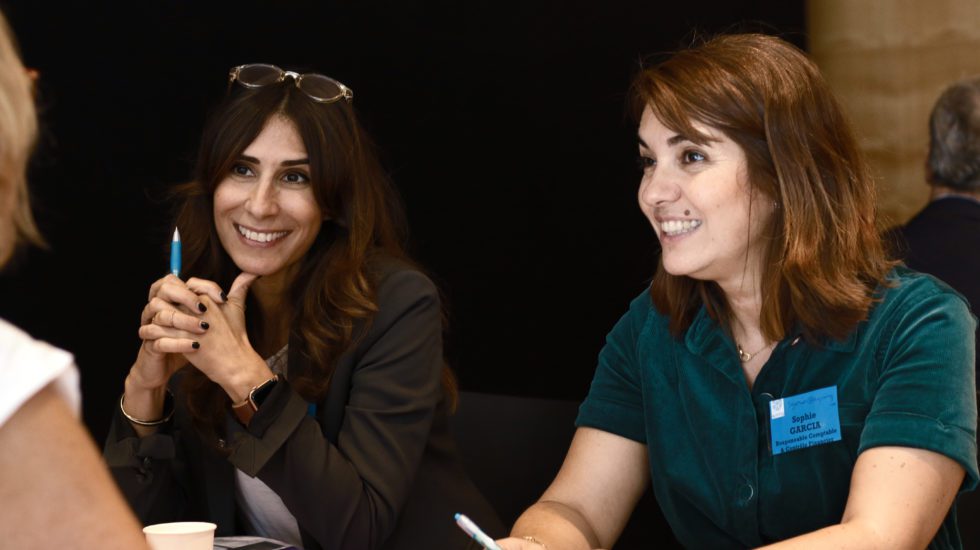Joana Palha, a civil engineer by trade, is an R&D Tax Manager in Ayming’s London office. After completing a Master’s in structural engineering in Portugal, Joana worked on a highways project in Brazil, followed by the Doha Metro in Qatar, and then London’s Crossrail – Europe’s largest infrastructure project. In August 2015 Joana changed track to apply her analytical skills to helping companies fund innovation as an R&D Consultant.
When did you first become interested in engineering?
I always had a passion for maths and physics, and since I was young I knew my future would be in a field of engineering. It was a practical way to use that knowledge, and the results can be very tangible. You need to be able to interact with people as well as numbers. I also liked the dynamic of being presented with different challenges and having to find ways to provide a solution. Engineering is a fascinating industry, where you can contribute to society and improve people’s lives by creating and maintaining buildings, bridges, etc. It is such a complex and diverse industry with so many different paths that you can take to achieve a successful career.
Did you have to overcome particular challenges as a woman?
Civil engineering (especially construction) was a very male-dominated environment, with women working mainly in office positions. This situation is starting to change; now more women are project managers, site engineers, designers or surveyors. But the gap is still big, and this hegemonic masculine culture of engineering can create an uncomfortable environment with limited access to female mentors and role models. Doing 12-hour shifts, sometimes overnight, you may be the only woman in a meeting. However, I always felt confident about expressing my ideas and the team was very supportive.
What qualities did you draw on?
Perseverance is important, and the ability to interact in a cross-cultural mix. You also need ambition and to be able to set goals and move on with those goals in mind.
“However, I think women aren’t perceived as leaders, and that is something we need to change.”
Are there still barriers for women in engineering or business?
I think men and women perform equally well. But sometimes women shy away from competitive environments. They are less likely to be competitive and aggressive, especially early in their careers, and that can impact their opportunities for progression. Successful women have very strong leadership skills, such as clear communication, methodical management, accountability and creativity. However, I think women aren’t perceived as leaders, and that is something we need to change.
Are there misconceptions about the job among young women?
Yes, people still have the idea that engineering is for men. There’s an unconscious bias. Working in the engineering industry can be perceived as a physically demanding job or less aesthetically appealing and therefore better suited to men. However, women have proved that they are capable of doing anything that men can, and this includes on-site work. But if this doesn’t appeal you, you can also be office-based, for example, designing on a laptop. There are so many opportunities within the engineering industry. That message is now getting through, but we still need to raise awareness.
What values define you and your work?
Honesty is an important value when you’re working with a team. And intelligent hard work – it’s not about staying 12 hours in the office, but about how to work hard with focus. Going back to perseverance: it’s important not to give up. Everyone will fail at some point. We need to find the strength to get up and go on.
What kind of environment encourages diversity and inclusion?
It should start and come from the senior management team: they should be equality and diversity champions. To create an inclusive culture for all staff, we need to acknowledge difference. We’re not all the same: we have different backgrounds, religions, genders, experience. Also, providing mentors – someone giving advice and sharing their working experiences – can be really good. We also need a fair allocation of workload and training too, so everyone can develop their full potential and access opportunities. When people feel their company supports them in this way, they’re much more committed.
What inspired your shift to R&D Consultant?
Although I love engineering, I was also curious about the world of finance and tax. Ayming gave me the opportunity to combine these industries into one, and at the same time learn about other trades and different types of innovation. Given my technical background, I tend to work mainly with clients within the construction/civil engineering industry. However, I am also involved with a wide range of sectors, including mechanical engineering and manufacturing – talking to clients about developments from wheelchairs to shoes.
What is the Ayming culture like?
The workplace culture is fantastic. I would describe it as supportive, competitive and friendly. As a new joiner or experienced consultant you don’t feel alone; you know the person next to you will be happy to help with any questions you have. I have met amazing people here, not only as professionals but on a personal level too. People really stick together and you see real teamwork and commitment.
How does a supportive environment feel?
An environment that supports diversity and equality makes people more comfortable about sharing their ideas and opinions. You want to be in a business that is not about following orders. You want to work together to develop something better. How can we reduce costs? Make it easier for clients? Speed up the process? It’s all about pulling together the different experience and people to make something that’s better for everyone. And that drives innovation.
What about work-life balance?
Flexible working is another aspect of this supportive environment. You can work from home as well as the office, if you have a long commute or family commitments. So I think Ayming will help me balance the two lives. Also, it’s an environment where people are open to hearing your concerns, so I would be comfortable to share, and confident that the company would be open to adapt.
What’s been most satisfying about your career change?
I came from an engineering background but I am now helping companies to reduce their tax bill through R&D tax incentive schemes. I have gained new knowledge that I never expected, and stayed in touch with the construction industry. As part of the project team I have helped companies access over £15 million in incentive reliefs. Achieving all that is quite satisfying.
Any tips you’d offer women starting off in engineering or business?
Don’t be afraid to try something different. Just because you start on one path, doesn’t mean you must stick with that. You’re allowed to change your mind and pursue other opportunities. If things don’t go as expected and you have to re-start, that’s fine. That’s how you learn. It’s important not to give up. Persistence, dedication and hard work pay off.









No Comments